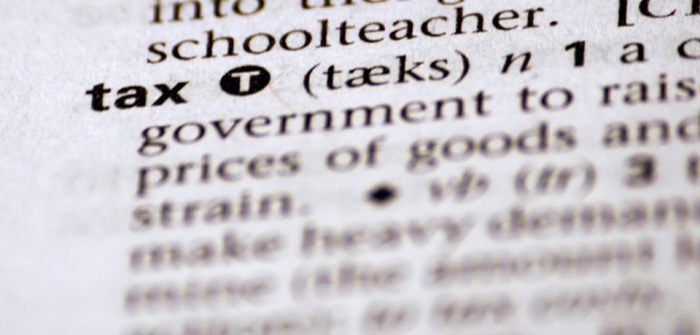 Tax by Alan Cleaver
Tax by Alan Cleaver
“I love taxes, they’re so easy to deal with!” This is a sentence you’ll never hear from anybody… ever. This is the reason why: even though every taxpayer knows that the “tax paying with us is fun” message they hear from tax advisers is simply an unrealistic slogan — they still hire them to get any help possible. Here are the most useful tax tips that will help you reduce your taxes, or at least prevent you from a unpleasant fine. Some of them might seem obvious, but you wouldn’t believe how often people forget about them.
1. Are you really single?
Your marital status is among the things you don’t have to think about for a long time when asked. However, even such simple information can get a bit more complicated than one would expect — especially for people living together who are not officially married. Legal definitions are a bit different to tax definitions. People often confuse living as spouses in a common-law relationship with being divorced or single. Such mistakes can cause trouble for the future when you attempt to claim various refundable credits, such as pension splitting amounts. You might also dangerously reduce your chance of getting the tax elections that allow assets to transfer to the surviving spouse in case of death.
2. Don’t forget about any income slips!
The problem with the undeclared income slip is not so great if you forgot to declare one once. However, if you happen to be inattentive two years in a row, you’ll be balancing on the verge of a huge fine. Ten per cent federal penalties, combined with provincial fines, can amount to very high numbers. It’s enough to start off with the unfortunate $5 on a T5 slip, and you have to be extra careful not to miss anything bigger than $3,000 in the next one to avoid vast fines from the authorities.
3. Disclosing all foreign investment homes is important
One of the most common cases in which disclosure is necessary is the ownership of property in the US. Let’s say its value is $100,000 CDN. When you combine it with the US investments and stocks, it well may be very close to the $100,000 disclosure limit, and you should therefore disclose it to the CRA. You’re obliged to disclose under different rules if you’re, for example, holding the property as an investment only partially. Penalties for the disclosure filed late can be very high!
4. Disclose to foreign governments as well
Foreign investments are very complicated to deal with. It’s not enough to let the CRA know what foreign investments you possess, you have to do the same with the authorities in the country in which you’ve invested. However, it’s not so bad after all. In most countries — including the US, where most Canadians have their foreign investments — foreign tax treaties help eliminate double taxation. Plan in advance and fill out all the relevant documentation in both countries and you’ll be free of double taxation and avoid huge fines.
5. Be careful with the Tax-Free Savings Account
Thousands of Canadians using the TFSA repaid the account too early, resulting in penalties last year. That is why you should be very careful when you repay the account this year, and in the future as well! It’s possible to hold up to $15,000 in the account, earning the tax-free income. If you withdraw from the account, you don’t automatically lose the contribution room if you re-contribute the following year.
6. Principal residence or the capital cost allowance exemption
 Calculator by Phillip Ingham
Calculator by Phillip Ingham
The CCA helps maintain equity by decreasing the year’s taxes on properties. It does so even if you successfully manage to sell the property. It is, however, impossible to claim both CCA and principal residence exception, which would shield the tax gain, since the CCA doesn’t allow that. If you own a rental property and you move in later on, or the other way round, the principal residence exception might still be available. If you switch the usage of property during the year, check the changes in taxes thoroughly, and find out if it’s necessary to file a tax election to keep reduced or differed taxes.
7. Non tax-deductible costs
Don’t throw all the non-deductibles into the trash can right away. You just have to search a bit harder and you’ll find a tax perquisite you wouldn’t dream you could claim for. Do you own a free-standing, functional unit? If it’s classified as a depreciating asset, there is a chance you may claim a depreciation deduction for it. Also, any construction expenditures are going to bring you the building allowance deduction. If neither of them work, you’ll still have a chance to raise the cost base of your property with it, and thereby reduce capital gains tax when selling the property.
8. Family trust? Why not!
The possibility of net tax reduction is possible as the family trust as multiple persons easily absorb taxable gains and income when you sell the property. In some cases, there is a possibility for each beneficiary of the trust to use the $750,000 exemption when selling the property.
9. Transitional and GST/HST claims
If you became the owner of any substantially renovated or new buildings, do not forget to claim for any transitional and GST/HST claims that you can. The CRA provides enough materials to guide you through the process quite easily. It’s very important to do this properly to avoid the unfortunate case of paying the tax twice — in this case to the vendor and the CRA. In some cases, you, as a buyer, are not even obliged to pay the vendor, but to process the payment with the CRA right away. Thus, it’s crucial to identify when to pay whom.
10. Interest deductions at a minimum
In order to raise your deductions to a maximum, double check if you claimed all allowable expenses — for example, interest paid to a spouse on an investment loan, loans used in addition to a normal mortgage for your investment acquisitions, interest paid to a financial institution where the proceeds were used for investments, and many more.

